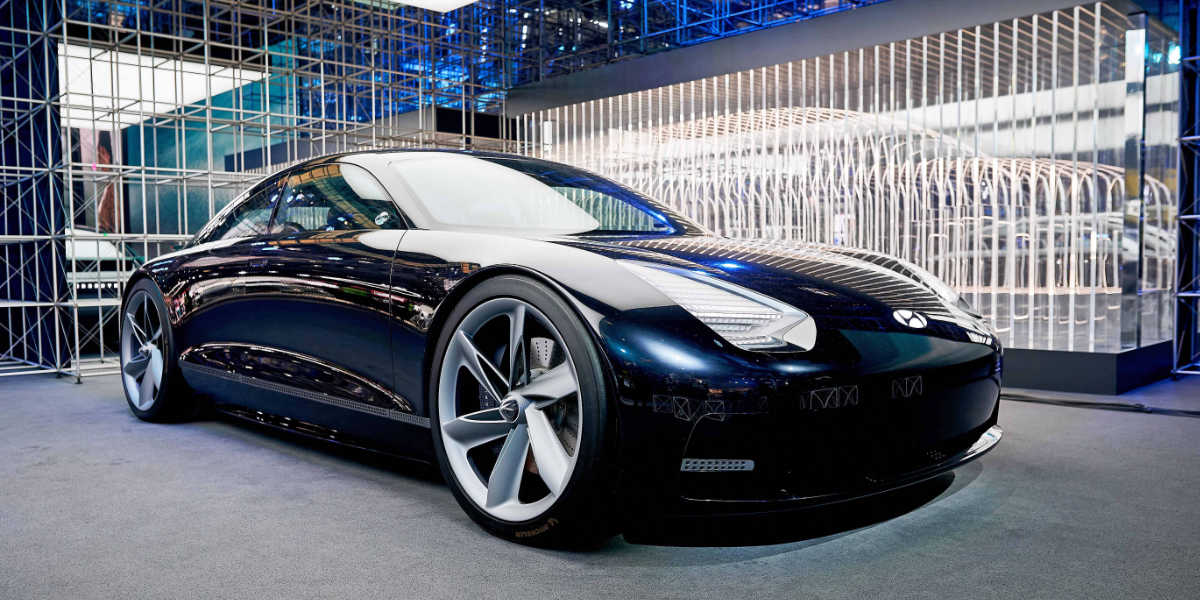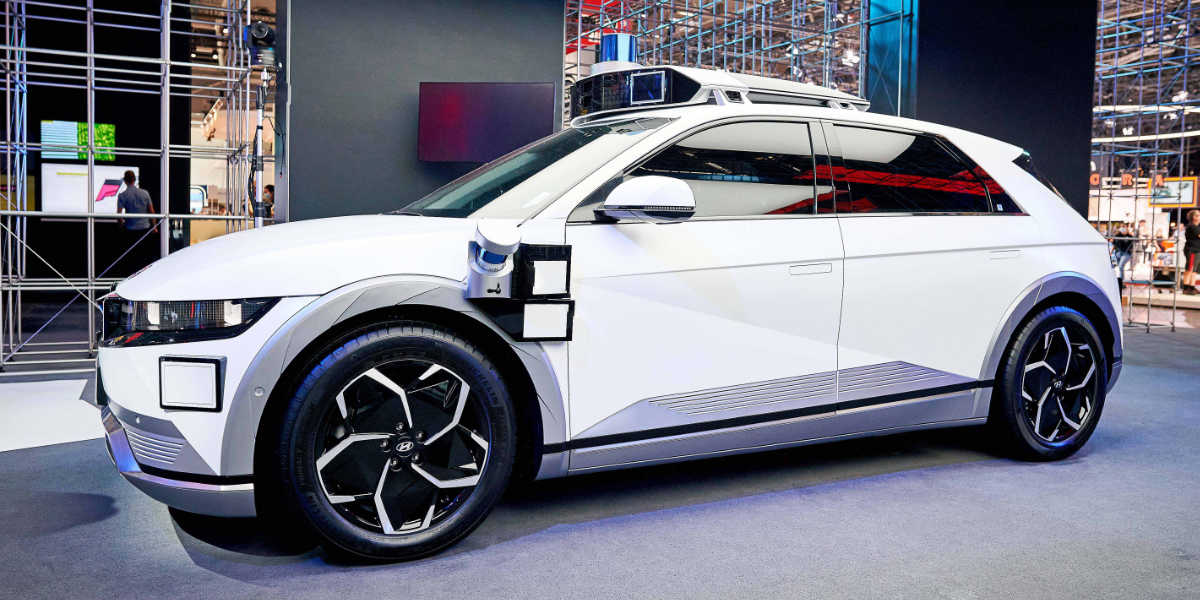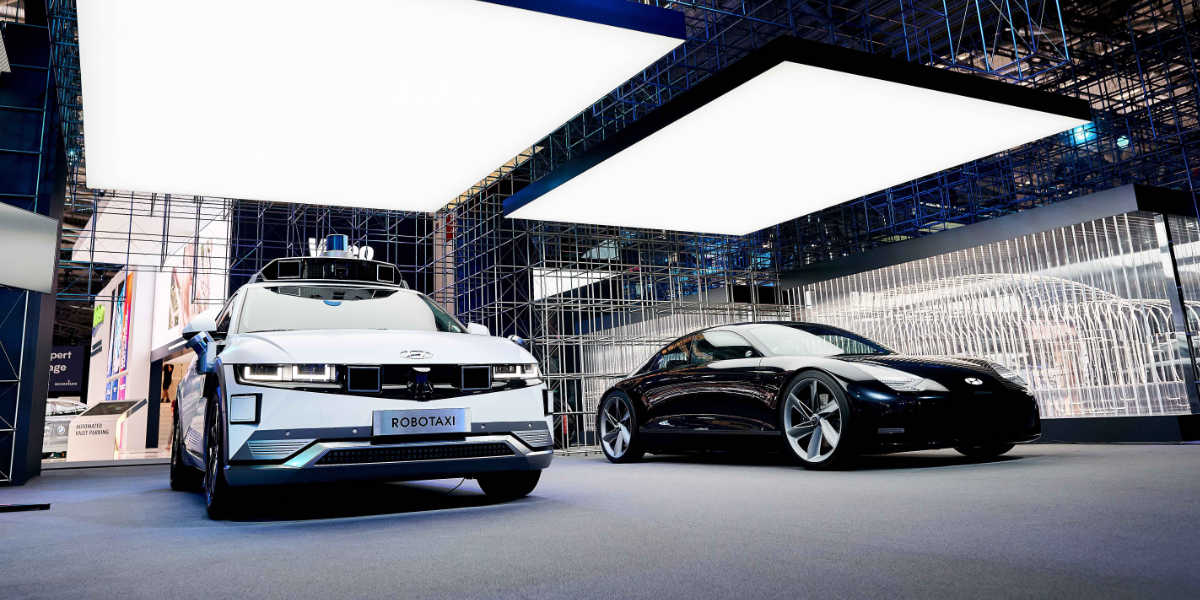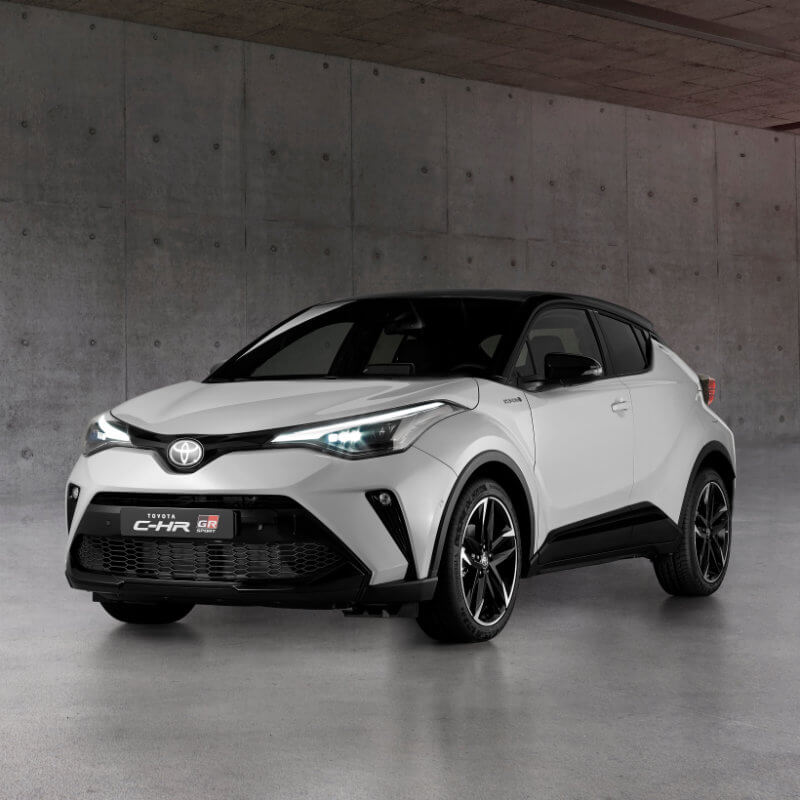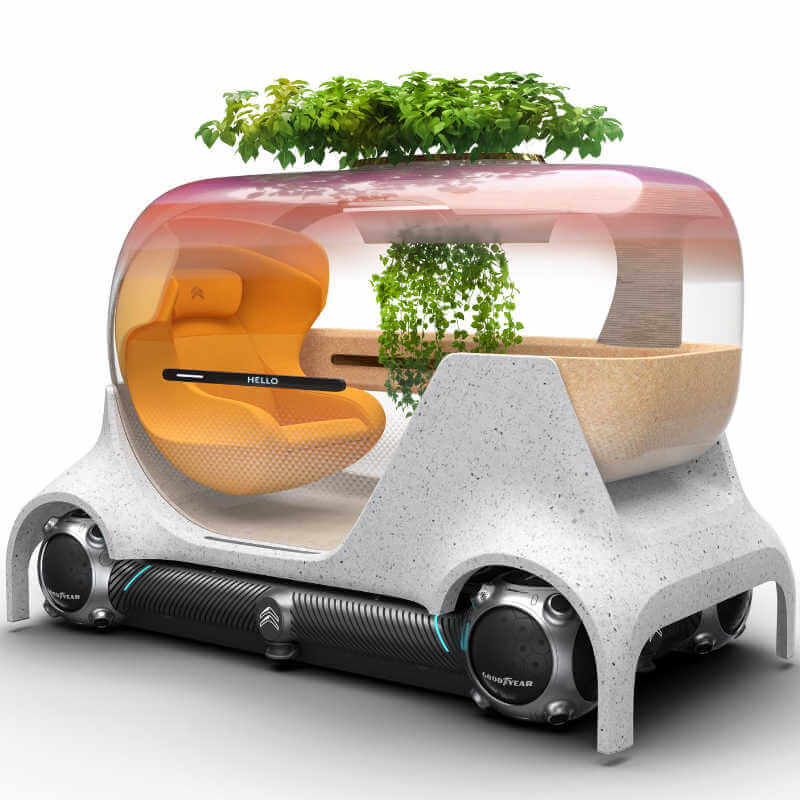How Hyundai wants to become carbon neutral by 2045
The Hyundai Motor Company has committed itself to be carbon neutral in its products and global operations by 2045. As one of the solutions to reach this goal, Hyundai will phase out all vehicles using fossil fuels in major markets by 2040.
Hyundai’s integrated strategy to achieve carbon neutrality, which was announced this week at IAA Mobility 2021 in Germany, rests on the following three pillars: clean mobility, next-generation platforms, and green energy. Hyundai is showcasing the full breadth of its electrified vehicle line-up and latest solutions to progress with positive energy at this year’s IAA taking place from September 6 to 12 in Munich.
“Under our company’s vision, ‘Progress for Humanity’, Hyundai Motor is determined to do the right thing for the world,” said Jaehoon (Jay) Chang, president and CEO of the Hyundai Motor Company. “Climate change is an undeniable challenge that needs everyone’s utmost and urgent attention. Hyundai Motor commits to become carbon neutral in its global products and operations by 2045, and we will make investments in cleaner transportation and greener energy solutions to achieve a better and more sustainable future for all.”
Hyundai Motor is exhibiting BEV concepts, the all-electric robotaxi model, and artistic displays on the hydrogen value chain at the IAA in Munich. Visitors using Hyundai’s Blue Lane service at the show also get to experience the brand’s latest clean mobility vehicles, including the IONIQ 5, the NEXO, Kona EV, and the Elec City Fuel Cell bus.
Hyundai’s demonstration at IAA is available digitally as well and the press conference video can be viewed on Hyundai Motor’s Worldwide YouTube channel at .
“With a new location and a live-digital hybrid format, this year’s IAA is very different from previous events, and we are very happy that we are participating once again as an exhibitor,” said Michael Cole, President and CEO of Hyundai Motor Europe. “We are excited to be sharing our future company vision, which goes beyond automotive mobility. On top of this, we are outlining our roadmap to enable a carbon neutral society, which is imperative as the future of the planet is at stake.”
Path to carbon neutrality.
At this year’s IAA, Hyundai Motor commits to reduce its carbon emissions to 75% below the 2019 level by 2040. Hyundai will achieve carbon neutrality in its products and global operations by 2045.
Hyundai Motor’s integrated, multi-dimensional strategy for carbon neutrality consists of three pillars: expanding its clean mobility line-up, developing next-generation platforms, and investing in green energy solutions and technologies.
Pillar 1: Clean mobility.
Since the first unveiling of its EV concept vehicle in 1991, Hyundai Motor has made progress towards carbon reduction through its leadership in clean mobility.
Hyundai Motor commits to gradually increase the sales share of zero-emission vehicles (ZEVs) in upcoming years. By 2030, Hyundai aims to secure 30% of its global vehicles sales with ZEVs, and by 2040, the company expects that battery electric vehicles (BEVs) and Fuel Cell Electric Vehicles (FCEVs) will account for 80% of its total fleet sales.
By region, Hyundai Motor plans to offer only ZEVs in Europe, starting in 2035. By 2040, Hyundai will phase out all vehicles using fossil fuels in major markets, supportive of the transition to clean mobility.
Battery Electric Vehicle (BEV).
In August 2020, Hyundai Motor launched its new IONIQ brand for dedicated BEVs, signalling its commitment to the electrified mobility era. Later last year the Hyundai Motor Group, parent of Hyundai Motor Company, unveiled its Electric-Global Modular Platform (E-GMP) for dedicated BEVs.
Hyundai Motor’s IONIQ 5, which was launched in February 2021, is the brand’s first BEV built on the E-GMP. The IONIQ 5 has set a new benchmark for redefining the electric mobility lifestyle with sustainable and innovative features, such as 400V and 800V multi-charging and Vehicle-to-Load (V2L).
Hyundai’s next dedicated BEV will be the IONIQ 6, which draws inspiration from its Prophecy EV concept that is on display at IAA 2021. The IONIQ 6 is going to offer BEV experiences with a focus on customized, eco-friendly solutions that can fit any lifestyle.
Fuel Cell Electric Vehicle (FCEV).
Hyundai Motor has invested in hydrogen fuel cell technology for more than 20 years. Hyundai launched the ix35, the world’s first mass-produced FCEV, in 2013, followed by NEXO, the first dedicated hydrogen-powered SUV, in 2018. Last year, the company delivered the XCIENT Fuel Cell, the world’s first mass-produced, fuel cell electric heavy-duty truck, to customers in Switzerland. Hyundai recently presented its Elec City Fuel Cell bus in Munich and the vehicle is now in a testing phase in Europe.
At IAA, Hyundai unveils its passenger FCEV roadmap for the next few years. In 2023, Hyundai will introduce the next model of NEXO and a hydrogen-powered multi-purpose vehicle (MPV) model. Hyundai plans to launch a large SUV powered by a fuel cell powertrain after 2025. Hyundai Motor is also going to provide its fuel cell powertrains to all types of mobility fleets and other areas of life.
Pillar 2: Next-generation platforms.
Hyundai Motor has made leading investments in the field of next-generation transportation platforms. This includes an innovative set of mobility options to get from point A to B, such as UAM and autonomous driving vehicles, offering greater freedom of mobility without a carbon footprint. These platforms are also in line with the company’s Progress for Humanity vision and shows Hyundai’s commitment to enhance urban liveability for future generations.
IONIQ 5-based robotaxi.
Hyundai Motor unveils the first look of its ground-breaking robotaxi model at IAA Mobility 2021. Hyundai has collaborated with Motional, a global leader in driverless technology, to develop the SAE Level 4 autonomous driving vehicle based on the IONIQ 5.
With an advanced sensor suite attached to Hyundai’s latest dedicated BEV model, the robotaxi features a technology-driven design that celebrates the innovation behind the autonomous operation. The vehicle will feature rider-focused interfaces to allow passengers to intuitively interact with the vehicle during their ride. Motional will begin transporting public passengers in the IONIQ 5-based robotaxi when it launches its fully driverless service in 2023.
Urban Air Mobility (UAM).
At CES 2020, Hyundai introduced the UAM concept model, S-A1, being developed based on four principles: safe, quiet, affordable and passenger-centered solutions. Hyundai Motor aims to launch an all-electric UAM model optimized for intra-city operations in 2028. In the 2030s, the company plans to launch regional air mobility that connects adjacent cities.
Pillar 3: Green energy.
Hyundai Motor’s carbon neutral strategy goes beyond the transition to ZEVs. It aims to provide cleaner and greener energy solutions for all. This includes not only using renewable energy at the company’s production facilities, but also making long-term investments in future technologies, such as green hydrogen based on renewable energy, Vehicle-to-grid (V2G) and Second Life Battery Energy Storage System (SLBESS).
Green hydrogen.
Green hydrogen obtained from electrolysis of water generated by low-carbon power sources is expected to significantly reduce carbon emissions. Hyundai Motor has invested in global start-ups, such as H2Pro, to cooperate in the field of green hydrogen. Furthermore, Hyundai plans to establish green hydrogen infrastructures in countries with strong government support and abundant renewable energy sources.
Carbon reduction at sites.
Hyundai Motor has been carrying out several activities to reduce the amount of carbon and other greenhouse gas emissions produced by its manufacturing processes. The company’s actions include continuing with its energy reduction activities and building eco-friendly plants by converting them to renewable energy sources like photovoltaic power.
In July, Hyundai Motor teamed with other affiliates of the Hyundai Motor Group to join Climate Group’s RE100, a global initiative committed to moving toward 100% renewable energy. Under the commitment, the Hyundai Motor Manufacturing Czech plant will be the company’s first factory to completely convert its electricity usage to renewable energy in 2022. The company aims to meet the electricity needs of over 90% of its global operations with renewable energy by 2040. Hyundai commits to power its entire global operations only with renewable energy by 2045.
Vehicle-to-grid (V2G).
V2G is the latest technology that allows energy to be pushed back to the power grid from the battery of an EV. It enables efficient energy demand management especially during peak hours, thus lessoning dependence on fossil fuels.
Hyundai is currently conducting several V2G pilot programs with various stakeholders in the market. The company plans to implement the V2G function to its upcoming BEV models.
Second Life Battery Energy Storage System (SLBESS).
Hyundai Motor is also looking to recover and transform end-of-life batteries into a new business of energy storage system. Hyundai is currently working with various local energy partners to run pilot projects to commercially reuse second-life EV batteries. Also, the company is scheduled to test a small size application of SLBESS in Germany next year.
“IAA Mobility is the perfect occasion to unveil our global vision for carbon neutrality. IAA is yet another milestone along the sustainable journey we’ve been paving for years. Hyundai Motor will remain steadfast in our pursuit of carbon neutrality and lead the way in the development of holistic solutions,” said Thomas Schemera, global chief marketing officer at Hyundai Motor Company.
“As a smart mobility solution provider, Hyundai also aspires to provide energy solutions for business and society overall. Climate change won’t be solved without a concerted effort. We will strive to do more for the environment via multiple sustainability projects in the months to come, inviting everyone to join us on our journey towards a cleaner future,” Schemera added.
Article by QuickPic.

